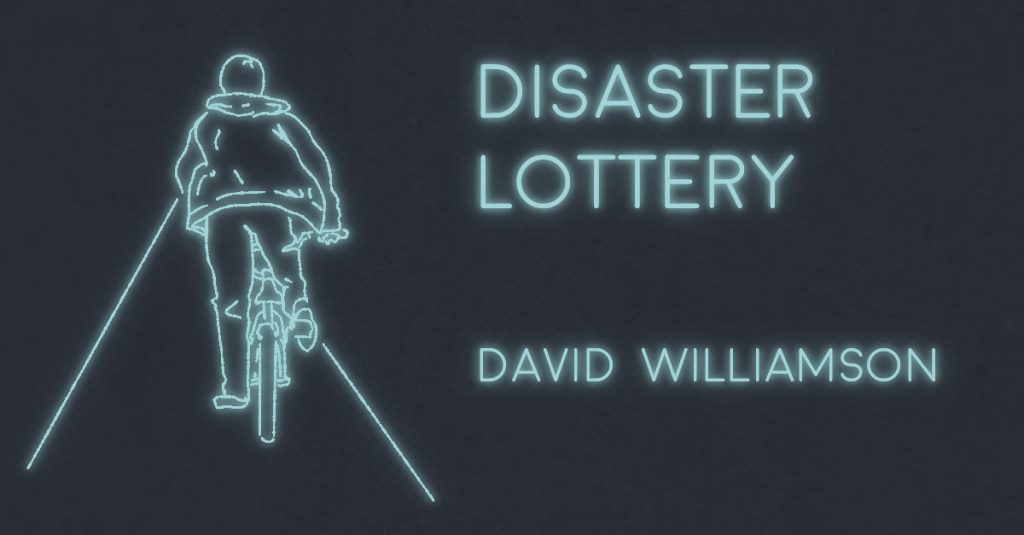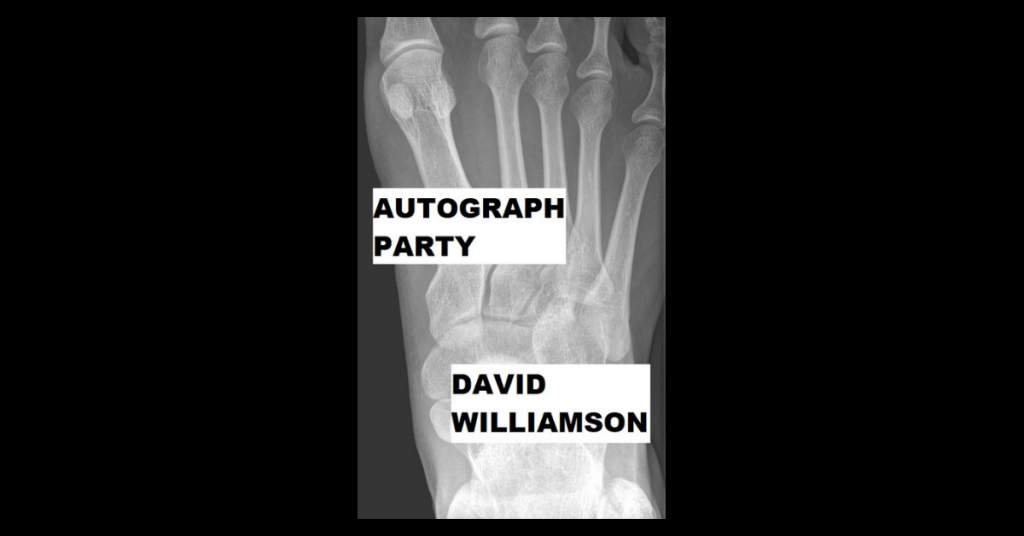
THE DISASTER LOTTERY by David Williamson
A few years back when I’m twelve and old enough to be alone at home while my parents leave and stay out late, I find some cigarettes and smoke them in the house, then I take two sips each from all the liquor bottles we have in the house, and then I get hit over the head with a premonition that my mom and dad are never coming back home. I move to the front window, the one that I can see the farthest down the road, and I stare out the glass and watch for their car. I focus…

